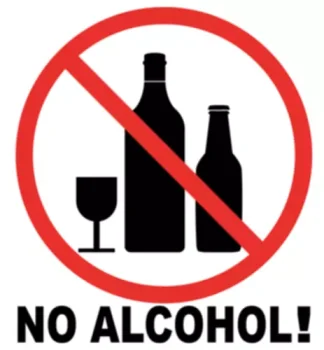
Residents may first move into homes with high levels of support and then transition to homes with lower levels of support. A 2006 study published in the American Journal of Public Health found that most Oxford House residents stayed more than a year, but some residents stayed more than three years. In other homes, counselors or case managers visit on a regular basis to provide in-home services. Former residents and treatment alumni may visit regularly to provide additional guidance and support. These rules are not meant to be punitive but are in place to support the health and recovery of all residents, creating a community that thrives on mutual respect and shared goals.
What are the Rules and Regulations of Sober Living Homes?
They offer additional support, including on site medical staff, to provide added care and assistance to their patients. Rehabilitation centers are often equipped to support individuals through or shortly after their detoxification (detox) phase. While some may be hungry to integrate back into society after a stint in a treatment program, there is an expectation that you will remain an active participant in the home and follow its rules. Some sober living houses may be placed in neighborhoods with high crime rates. Something important to note is that sober living houses are not the same as halfway houses.

Learning Center

An inpatient or outpatient treatment program is commonly referred to as committing to a rehab plan. During this period, you will work closely with your treatment team to address your drug or alcohol addiction and any mental health treatment you may need. You will also learn the tools and resources you need to take full advantage of your sobriety and everything that comes with it. Sober living houses play a crucial role in supporting individuals as they navigate the complexities of recovery. Offering a bridge between structured treatment environments and independent living, these residences provide the stability and community support necessary for sustained sobriety.

What Happens if You Relapse in a Sober Living Home?
Halfway houses may offer a range of services, including counseling, support groups, and assistance with finding employment or educational opportunities. The emphasis is on providing a supportive bridge between treatment and independent living. Length of stay in a halfway house typically depends on the facility policies. Sometimes, a person who https://ecosoberhouse.com/ has committed a drug-related crime may be sentenced to stay in a halfway house for a certain time instead of being sentenced to prison or jail time. Halfway houses are a bridge between incarceration and community living. If you are in drug rehab right now or entering it through FHE Health, your goal should be to focus on your current needs.

Choose from the links below to find Transitional housing in New York
We do not receive any commission or fee that is dependent upon which treatment provider a caller chooses. Transitional housing is temporary housing for the working homeless population and is set up to transition their residents to permanent housing. They serve as a transition between treatment and return to normal life. If you are interested in exploring sober living in sober house vs rehab California, see if you can find what you’re looking for with the most frequently asked questions we receive here at Gratitude Lodge in Southern California. You can also look into Oxford Houses, which provide all recovering users the opportunity to develop comfortable sobriety without relapse. Family members can play an important role in a relative’s recovery journey.
- A study published in the Journal of Psychoactive Drugs by the Alcohol Research Group Public Health Institute showcased the importance of social and environmental factors in recovery.
- If eligible, we will create a treatment plan tailored to your specific needs.
- From here, we can help you move into transitional living or a sober house right for your best steps forward.
- The monthly cost you pay for Ohio sober living will depend on the city you reside in and your income.
- By continuing your recovery process at a sober living home, you’ll surround yourself with peers committed to sobriety and embracing sober living.
- A comprehensive approach often involves a combination of these components to address the various aspects of addiction and recovery.
- The long term goal is to equip those individuals with the skills they need in order to maintain long term sobriety.
- In Oxford Houses, individuals who relapse cannot return until they complete a 28-day rehab program or complete treatment and demonstrate an ability to continually attend support group meetings.
- At a sober living house, rules and safeguards can help build a foundation for sustained long-term abstinence and improved quality of life.
- Although there will be specific rules you will need to follow as part of sober living life, you will still have access to our treatment team and the medical care you may need as part of your recovery.